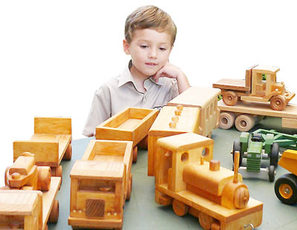Nature Vs. Nurture Debate
The Character of Children Through Nurturing
Parenting
It is largely agreed that a child's personality is influenced primarily by the guidance of their parents. Throughout the years, methods of parenting and child-rearing have changed according to the studies made in support of nurturing the child.
In 2000, the American Psychologist journal reported that 55% of a child's behavior comes from the example that the parents set forth (Collins). As you may imagine, this side of the debate has seen success in the actions parents have taken to better connect with their children.
Parental counseling has become ubiquitous in our society, especially in our schools. The success of the nurture debate is reflected in the continued stressing of educators that parents should forge tight relationships with the schools that their children are attending. Not only that but parents should cooperate with their children to help them accomplish their academic goals (Cale).
In 2000, the American Psychologist journal reported that 55% of a child's behavior comes from the example that the parents set forth (Collins). As you may imagine, this side of the debate has seen success in the actions parents have taken to better connect with their children.
Parental counseling has become ubiquitous in our society, especially in our schools. The success of the nurture debate is reflected in the continued stressing of educators that parents should forge tight relationships with the schools that their children are attending. Not only that but parents should cooperate with their children to help them accomplish their academic goals (Cale).
Peer Pressure
In the 1990s, attention became drawn to new trends in the development of children attending school. All of a sudden, the parents were not the only nurturing factors to be considered in a child's life. Their peers began to take center-stage. The emergence of the awareness of peer pressure, though not pertaining to children, started with Robin Dunbar's comparison of human relationships in comparison to primate cultures (Comparison).
Bringing the issue of peer pressure to public consciousness can be viewed as a success because it changed the way parents interacted and brought up their children for the better. Parents began to find different ways to raise their children so as to up their self-esteem to fight peer pressure. Other parents cleverly thought to use this to their advantage by having their children attend prestigious schools to surround them with hard-working peers (Harris).
Bringing the issue of peer pressure to public consciousness can be viewed as a success because it changed the way parents interacted and brought up their children for the better. Parents began to find different ways to raise their children so as to up their self-esteem to fight peer pressure. Other parents cleverly thought to use this to their advantage by having their children attend prestigious schools to surround them with hard-working peers (Harris).


